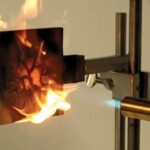Loughborough University has been awarded £3.9m to develop a totally new way of designing and fabricating high frequency communications circuitry, it was announced today (Friday, October 16).
The funding from the Engineering and Physical Sciences Research Council will be used to establish the SYMETA (SYnthesizing 3D METAmaterials for RF, microwave and THz applications) research programme.
Current conventional printed circuit board manufacturing and assembly processes involve harsh chemicals, etching, high volumes of water and high temperatures.
SYMETA’s aim is to employ metamaterial technology to construct the circuits and significantly reduce both the number of processes involved in the circuit manufacture and the components soldered onto the boards. Metamaterials are engineered composite materials that have certain electromagnetic properties not normally found in nature, and can therefore be designed to create high frequency circuitry like that found in mobile phones.
With rapid advancements in the development of metamaterials, the possibilities for innovative applications across many sectors are significant.
SYMETA’s research has the potential for significant academic, economic, societal and environmental impacts. Industries that could benefit from the research include aviation, space, healthcare and the military.
The SYMETA team will be led by Professor Yiannis Vardaxoglou from Loughborough University.
Other research partners include the Universities of Exeter, Oxford, Sheffield and Queen Mary, University of London.
Professor Vardaxoglou said: “Introducing these novel structures into the complex world of electronic design will offer a radical new way of designing and manufacturing electronics at low cost.
“We are grateful to EPSRC for supporting such an innovative and timely project.”
The funding for SYMETA was announced by Science Minister Jo Johnson, who was unveiling a £21m investment by the EPSRC into research that aims to tackle some of the major challenges facing science and engineering.
Speaking about the £21m EPSRC funding, Science Minister Jo Johnson said: “As a One Nation Government we are investing in world-class science and engineering across our country. We want the UK to be the best place in Europe to innovate and this £21m investment will bring together the nation’s researchers to address some of the most pressing engineering challenges we face.”











